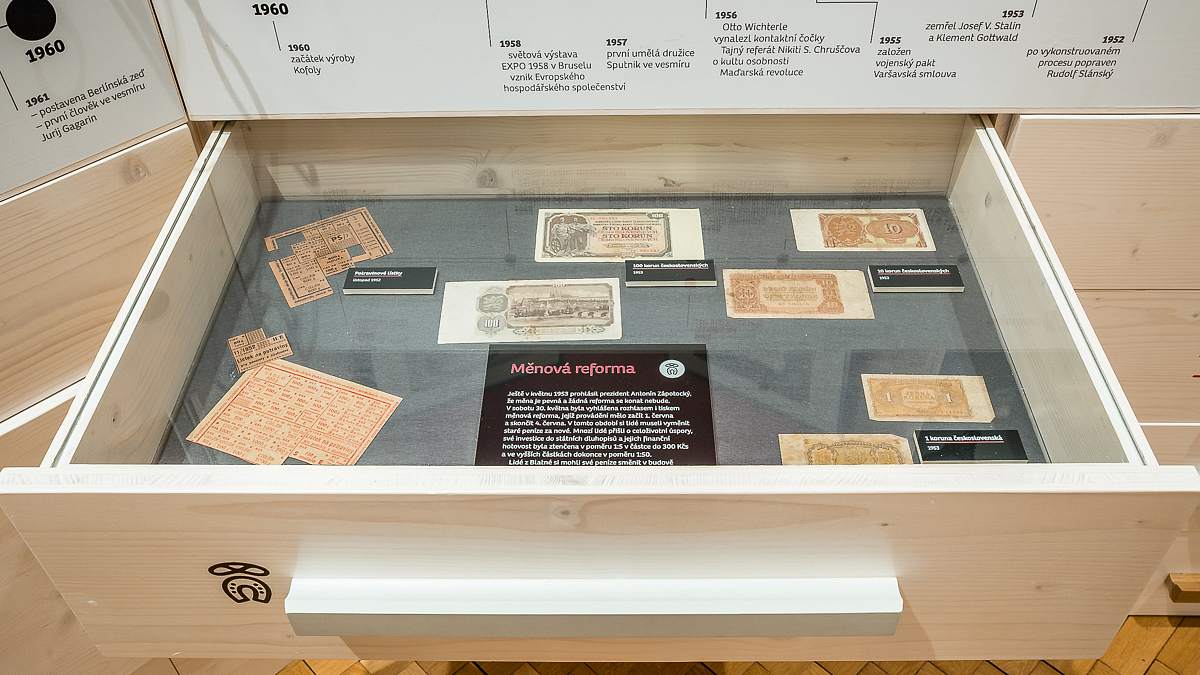COMMUNIST TRANSFORMATION OF BLATNÁ
World War II was followed by the Cold War. In 1948, the Communist Party took power in Czechoslovakia and immediately started a transformation according to the Soviet example. In Blatná, members of the Sokol movement were among those who felt the first impacts of these changes; they were being closely monitored during their departure to the nationwide Sokol festival held in Prague in June 1948. Right after their return, they would be subjected to bullying and attacks by the Communist government apparatus.
The main characteristic of the years 1948 and 1950 was the gradual nationalization of small enterprises and the collectivization of land. For instance, Velospol, a manufacturer of bicycle components, was nationalized in 1948 and incorporated into České závody motocyklové (English: Czech Motorcycle Works), where they transformed production into motorcycles. In 1955, the successful production of two-wheelers was moved to the town of Cheb. The cosmetic company Černá hlava was transferred in 1948 under the control of Rakona Rakovník, which, in 1950, moved it to Bratislava and Rakovník. The renowned chateau distillery was transferred in 1948 to Západočeské lihovary and converted into a fruit warehouse in 1955 for lack of profitability. The Blatná beer brand of Kohout, which was named after its first brewmaster Eduard Kohout, ceased to exist in 1978.
A big blow was the nationalization of the rose-making business of Jan Böhm in 1950, when his companies were transferred to the municipal enterprise of Lidoslužby města Blatná (English: Communal Services of the Town of Blatná). Jan Böhm was allowed to work in this enterprise, but amateurish management resulted in the decline of the provided services. In 1956, the companies were incorporated under the collective farm Blatenská růže (English: The Rose of Blatná), similarly to many other farmers who were also forced to incorporate their property into the joint enterprise. The additional professionals who joined in the 1960s would not protect the rose-making companies from the wild privatization after 1989 and the rose-making industry ceased to exist.
RESONET, which started to develop electronic instruments in 1947, was a world-renowned company. The Its piano was developed in 1949 and the most famous product left the production hall in 1955. It was the Grazioso electric guitar invented by Jan Hořejš. The instrument would be played by guitarists such as George Harrison or Eric Clapton. In 1958, it was awarded a gold medal at Expo58 in Brussels. In 1962, the enterprises were moved to Hradec Králové.
The museum, which was being constantly moved after 1945 to unsuitable premises, also suffered a decline. Between 1953 to 1967, the curators of the museum made attempts to resume its activities, but to no avail. Finally, in 1972, the museum was closed down and its collections were conserved. So, this was the transformation of Blatná, where the 1953 monetary reform was only one of the many blows suffered by its inhabitants after the war.


